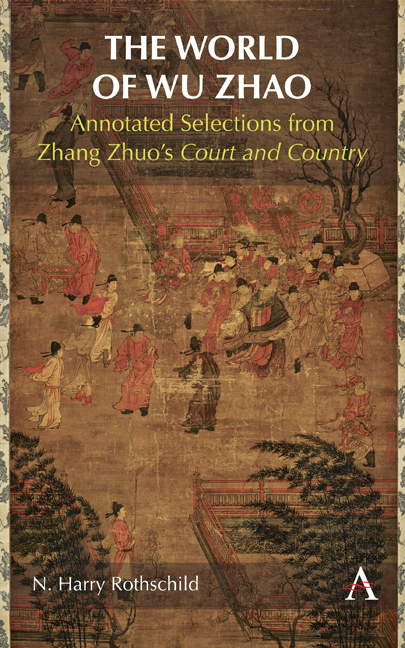Book contents
- Frontmatter
- Dedication
- Contents
- Acknowledgments
- Figures
- Map
- Tables
- Weights and Measures
- Introduction
- Chapter 1 Wu Zhao: her inner palace, her inner circle
- Chapter 2 The culture of the court
- Chapter 3 “Cruel officials”: Wu Zhao’s “teeth and horns”
- Chapter 4 Beyond court and capital: local officials
- Chapter 5 The common people
- Chapter 6 Relationships: men, women, and family in the time of Wu Zhao
- Chapter 7 Generals and military men
- Chapter 8 The frontier and beyond: foreigners and others during Wu Zhao’s reign
- Chapter 9 Religion and the supernatural world
- Chapter 10 Flora, fauna, and the natural world
- Afternote
- Appendix: People and Places
- Notes
- Bibliography
- Index
Chapter 6 - Relationships: men, women, and family in the time of Wu Zhao
Published online by Cambridge University Press: 15 November 2023
- Frontmatter
- Dedication
- Contents
- Acknowledgments
- Figures
- Map
- Tables
- Weights and Measures
- Introduction
- Chapter 1 Wu Zhao: her inner palace, her inner circle
- Chapter 2 The culture of the court
- Chapter 3 “Cruel officials”: Wu Zhao’s “teeth and horns”
- Chapter 4 Beyond court and capital: local officials
- Chapter 5 The common people
- Chapter 6 Relationships: men, women, and family in the time of Wu Zhao
- Chapter 7 Generals and military men
- Chapter 8 The frontier and beyond: foreigners and others during Wu Zhao’s reign
- Chapter 9 Religion and the supernatural world
- Chapter 10 Flora, fauna, and the natural world
- Afternote
- Appendix: People and Places
- Notes
- Bibliography
- Index
Summary
Why is there marriage in the Way of humanity? It is because among the great natural urges, there are none so great as those between male and female. The intercourse between male and female is the beginning of human relations; there is nothing as crucial as the bond between husband and wife.—Comprehensive Discussions in White Tiger Hall, first cent. AD
A NUMBER OF PASSAGES in Court and Country explore dimensions of relationships— between men and women, husbands and wives, masters and slaves, fathers and daughters, and even the impact that fetishes have upon relationships. Compiled by a court official and a talented literatus, Zhang Zhuo’s work exudes, at times, a pungent androcentric Confucian fetor. Society in early and medieval China was, to quote Yang Lien-sheng, “predominantly patriarchal and patrilineal.” In general terms, men were conceptualized largely as creatures composed of yang energy—associated with the sun, light, an active nature, Heaven, and the public domain; women were understood to be wrought primarily of yin, linked to the moon, cold, darkness, passivity, Earth, and the inner, domestic sphere. But these are not discrete polar spheres. To an extent, there were “correlative,” interdependent, and complementary aspects to yin and yang, inner (nei 內) and outer (wai 外), providing discursive space for a wider range of possibilities and opportunities in the construction of gender. Yenna Wu observes, “The patriarchal system that affirmed male supremacy actually provided [women] with openings for obtaining domestic power— especially if she were a principal wife of the gentry class.” Similarly, Richard Guisso observes that, “If the Five Classics fostered the subordination of woman to man, they fostered even more the subordination of youth to age. Thus, in every age of Chinese history where Confucianism was exalted, the woman who survived, the woman who had age and the wisdom and experience that accompanied it, was revered, obeyed and respected […] even if her son were an emperor.” Wu Zhao availed herself of this discursive space to amplify her authority as grand dowager, a mother of state. Nonetheless, there were well-established cultural norms and expectations: In the “Domestic Rules” (Neize 內則) chapter of the early canonical Book of Rites, it is recorded that “men do not speak of the inner, women do not speak of the outer.”
- Type
- Chapter
- Information
- The World of Wu ZhaoAnnotated Selections from Zhang Zhuo's <i>Court and Country</i>, pp. 119 - 134Publisher: Anthem PressPrint publication year: 2023

